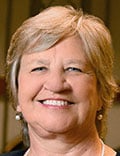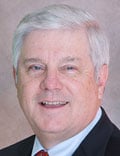For the past two decades, the nation’s main associations overseeing nursing education have called for the Doctor of Nursing Practice (DNP) to be the standard entry-level degree for advanced practice registered nurses [APRNs], rather than the Master of Science in Nursing (MSN).
While the number of nurse training programs offering doctorates has grown, the doctoral degree has not yet become the norm for a number of reasons. For now, there’s little financial incentive to obtain a higher degree, nor is there significant evidence that a doctorate improves the quality of care.
“It comes down to cost and lack of time and lack of data that shows that the DNPs and master’s trained APRNs practice differently,” said Marion E, Broome, PhD RN, FAAN, a professor of nursing at Duke University in Durham, North Carolina. “This isn’t to say that they don’t,” she added. “But we just don’t have that data available yet.”
In 2004, the American Association of Colleges of Nursing (AACN) issued a statement recommending that the DNP become the entry-level degree for advanced practice nurses by 2015, citing the increased complexity of patient care, quality of care, patient safety concerns, and shortages of nurses.
Another “deadline” has now been set for shifting from the MSN to the DNP. In May 2018, the National Organization of Nurse Practitioner Faculties (NONPF) announced that all entry-level nurse practitioner education programs should transition to the DNP by 2025. That date is only 2 years away, and once again, the anticipated shift has not yet occurred.
Is it possible that all programs will transition to the DNP within such a short period?
“Feasibility is a big question, as we have faculty retiring and professional organizations have different ideas for outcomes,” said Broome.
While some progress has occurred, barriers remain to making the degree the only entry point for potential nurse practitioners.
Resistance to Change
Entry-level degrees have been debated for decades, since nursing education moved from the hospital to the classroom. There has long been resistance to raising the educational bar for reasons such as cost, time constraints, and lack of employer demand for the higher degree.

Dr Linda McCauley
This also occurred with the associate’s degree in nursing and the Bachelor of Science in Nursing (BSN) education, said Linda A. McCauley, RN, PhD, FAAN, dean and professor of the nursing school at Emory University in Atlanta, Georgia.
Associate nursing degrees “did not go away when the market still needed all the nurses they could hire and would hire 2-year grads,” McCauley said.
In 1965, the American Nurses Association recommended that the BSN degree become the entry-level degree for registered nurses. Decades have passed, nurses continue to enter the field with an associate degree from community colleges, and no nursing state license commission has yet adopted the BSN — or the DNP — as a minimum degree.

Dr Michael Carter
Michael Carter, DNSc, DNP, FAAN, professor emeritus at the University of Tennessee Health Science Center College of Nursing (UTHSC), said that when he became an APRN in 1973, there were almost no nurse practitioner programs and very few master’s degree programs.
“Most were short-term programs that offered a certificate,” he said. “Yet, we moved these programs into the master’s, and there was a cry that we would disenfranchise all those who did not or could not obtain a master’s degree.”
The DNP program began at UTHSC in 1999 when Carter was dean of the nursing college, he said.
Progress in Education, With Some Caveats
During the past 15 years, the number of DNP programs has steadily increased. More than 60,000 nurses have earned a DNP degree, said Joan M. Stanley, CRNP, PhD, FAAN, AACN’s senior director of education policy. About 407 programs are currently enrolling students, and an additional 106 new DNP programs are in the planning stages (49 post-baccalaureate and 47 post-master’s programs).

Dr Joan Stanley
She pointed out that AACN’s enrollment in DNP programs between 2020 and 2021 increased by 4%, or 1562 students, while graduates increased by 10.5% (959 students).
“This is welcome news considering that we are coming out of a 3-year pandemic, which placed tremendous strain on nursing education programs and the nursing workforce overall,” she said. She noted that the AACN board has reaffirmed its position and its support for the transition.
To facilitate acquisition of the DNP and to reduce the time and cost commitment, programs are offering a variety of pathways. A survey conducted by the AACN last year indicates that in 2022, most schools included in the review had both BSN-to-DNP and MSN-to-DNP tracks (66%); 24% had only an MSN-to-DNP track; and 10% had only a BSN-to-DNP track.
Some problems cited as preventing the transition from master’s to doctorate include a lack of consistency in programs, which makes it challenging to educate experienced nurses who hold master’s degrees along with post-baccalaureate students who have little or no clinical background.
Stanley also emphasized that neither AACN nor NONPF calls for individuals who are already licensed and are practicing as an NP or any APRN to return to school to obtain a DNP degree. “It is recommended, particularly for those who are early in their career, since this is the degree that we believe a majority of APRNs will have in the future and will be sought after by employers,” she explained.
Continuing Confusion Over Roles
Another challenge is that the role of DNPs beyond the academic world has not been clearly defined.
Of 13 employers consulted by the AACN in preparing its 2022 report on the DNP, most could not readily identify differences in the provision of direct patient care by MSN- and DNP-prepared nurses. In addition, academic leaders could not identify differences in clinical skills between the groups. AACN notes that this “may relate to the fact that MSN-prepared nurses leave school having completed the same competencies that prepare them for clinical practice.”
Stanley notes that the AACN report pointed to other factors that slow the transition to doctoral education for APRNs. “This includes a lack of understanding among employers and other healthcare professionals about the DNP degree, particularly around practice expectations and which roles they should fill,” she said. “However, schools that have made this change and closed their master’s-level APRN programs report that they have maintained their enrollments and continue to experience interest in these programs.”
Most employers and academic leaders recognize that DNP graduates have a larger and more diverse skill set ― particularly in the areas of leadership, evidence-based practice, critical thinking, and quality improvement ― and greater knowledge of policy and economics, the report emphasized. But it remains to be seen whether the DNP becomes the widely accepted standard entry degree for APRN students by the 2025 deadline.
Roxanne Nelson is a registered nurse and an award-winning medical writer who has written for many major news outlets and is a regular contributor to Medscape.
For more news, follow Medscape on Facebook, Twitter, Instagram, and YouTube.
Source: Read Full Article
